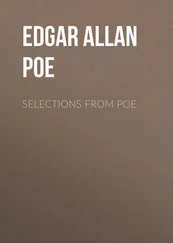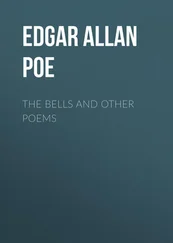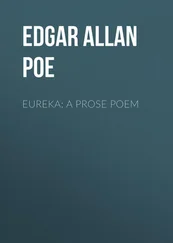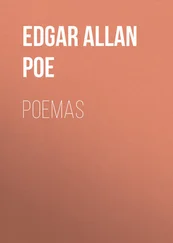Edgar Poe - CRITICISM
Здесь есть возможность читать онлайн «Edgar Poe - CRITICISM» весь текст электронной книги совершенно бесплатно (целиком полную версию без сокращений). В некоторых случаях можно слушать аудио, скачать через торрент в формате fb2 и присутствует краткое содержание. Жанр: на английском языке. Описание произведения, (предисловие) а так же отзывы посетителей доступны на портале библиотеки ЛибКат.
- Название:CRITICISM
- Автор:
- Жанр:
- Год:неизвестен
- ISBN:нет данных
- Рейтинг книги:3 / 5. Голосов: 1
-
Избранное:Добавить в избранное
- Отзывы:
-
Ваша оценка:
- 60
- 1
- 2
- 3
- 4
- 5
CRITICISM: краткое содержание, описание и аннотация
Предлагаем к чтению аннотацию, описание, краткое содержание или предисловие (зависит от того, что написал сам автор книги «CRITICISM»). Если вы не нашли необходимую информацию о книге — напишите в комментариях, мы постараемся отыскать её.
CRITICISM — читать онлайн бесплатно полную книгу (весь текст) целиком
Ниже представлен текст книги, разбитый по страницам. Система сохранения места последней прочитанной страницы, позволяет с удобством читать онлайн бесплатно книгу «CRITICISM», без необходимости каждый раз заново искать на чём Вы остановились. Поставьте закладку, и сможете в любой момент перейти на страницу, на которой закончили чтение.
Интервал:
Закладка:
To the Evening Wind has been justly admired. It is the best specimen of that completeness which we have before spoken of as a characteristic feature in the poems of Mr. Bryant. It has a beginning, middle, and end, each depending upon the other, and each beautiful. Here are three lines breathing all the spirit of Shelley.
Pleasant shall be thy way, where meekly bows
The shutting flower, and darkling waters pass,
And 'twixt the o'ershadowing branches and the grass.
The conclusion is admirable Go- but the circle of eternal change,
Which is the life of Nature, shall restore,
With sounds and scents from all thy mighty range,
Thee to thy birth-place of the deep once more;
Sweet odors in the sea air, sweet and strange,
Shall tell the home-sick mariner of the shore,
And, listening to thy murmur, he shall deem
He hears the rustling leaf and running stream.
Thanatopsis is somewhat more than half the length of The Forest Hymn, and of a character precisely similar. It is, however, the finer poem. Like The Waterfowl, it owes much to the point, force, and general beauty of its didactic conclusion. In the commencement, the lines
To him who, in the love of nature, holds
Communion with her visible forms, amp;c. belong to a class of vague phrases, which, since the days of Byron, have obtained too universal a currency. The verse
Go forth under the open sky and listis sadly out of place amid the forcible and even Miltonic rhythm of such lines as Take the wings
Of morning, and the Barcan desert pierce,
Or lose thyself in the continuous woods
Where rolls the Oregon
But these are trivial faults indeed and the poem embodies a great degree of the most elevated beauty. Two of its passages, passages of the purest ideality, would alone render it worthy of the general commendation it has received.
So live, that when thy summons comes to join
The innumerable caravan that moves
To that mysterious realm where each shall take
His chamber in the silent halls of death,
Thou go not, like the quarry slave at night,
Scourged to his dungeon; but sustained and soothed
By an unfaltering trust, approach thy grave
Like one who wraps the drapery of his couch
About him, and lies down to pleasant dream.
The hills
Rock-ribbed and ancient as the sun- the vales
Stretching in pensive quietude between The venerable woods- rivers that move
In majesty, and the complaining brooks
That make the meadows green- and, pured round all,
Old Ocean's gray and melancholy waste Are but the solemn decorations all
Of the great tomb of man.
Oh, fairest of the Rural Maids! is a gem, of which we cannot sufficiently express our admiration. We quote in full.
Oh, fairest of the rural maids!
Thy birth was in the forest shades;
Green boughs and glimpses of the sky
Were all that met thine infant eye.
Thy sports, thy wanderings when a child
Were ever in the sylvan wild;
And all the beauty of the place
Is in thy heart and on thy face.
The twilight of the trees and rocks
Is in the light shade of thy locks,
Thy step is as the wind that weaves
Its playful way among the leaves.
Thine eyes are springs, in whose serene
And silent waters Heaven is seen;
Their lashes are the herbs that look
On their young figures in the brook.
The forest depths by foot impressed
Are not more sinless than thy breast;
The holy peace that fills the air
Of those calm solitudes, is there. A rich simplicity is a main feature in this poem- simplicity of design and execution. This is strikingly perceptible in the opening and concluding lines, and in expression throughout. But there is a far higher and more strictly ideal beauty, which it is less easy to analyze. The original conception is of the very loftiest order of true Poesy. A maiden is born in the forest Green boughs and glimpses of the sky
Are all which meet her infant eyeShe is not merely modelled in character by the associations of her childhood- this were the thought of an ordinary poet- an idea that we meet with every day in rhyme- but she imbibes, in her physical as well as moral being, the traits, the very features of the delicious scenery around her- its loveliness becomes a portion of her own The twilight of the trees and rocks
Is in the light shade of her locks,
And all the beauty of the place
Is in her heart and on her face. It would have been a highly poetical idea to imagine the tints in the locks of the maiden deducing a resemblance to the "twilight of the trees and rocks," from the constancy of her associations- but the spirit of Ideality is immeasurably more apparent when the "twilight" is represented as becoming identified with the shadows of her hair.
The twilight of the trees and rocks
Is in the light shade of her locks,
And all the beauty of the place
Is in her heart and on her face. Feeling thus, we did not, in copying the poem, [comment on] the lines, although beautiful,
Thy step is as the wind that weaves
Its playful way among the leaves, nor those which immediately follow. The two concluding verses however, are again of the most elevated species of poetical merit.
The forest depths by foot impressed
Are not more sinless than thy breast The holy peace that fills the air
Of those calm solitudes, is there.
The image contained in the lines
Thine eyes are springs in whose serene
And silent waters Heaven is seenis one which, we think, for appropriateness, completeness, and every perfect beauty of which imagery is susceptible, has never been surpassed- but imagery is susceptible of no beauty like that we have designated in the sentences above. The latter idea, moreover, is not original with our poet.
In all the rhapsodies of Mr. Bryant, which have reference to the beauty or the majesty of nature, is a most audible and thrilling tone of love and exultation. As far as he appreciates her loveliness or her augustness, no appreciation can be more ardent, more full of heart, more replete with the glowing soul of adoration. Nor, either in the moral or physical universe coming within the periphery of his vision, does he at any time fail to perceive and designate, at once, the legitimate items of the beautiful. Therefore, could we consider (as some have considered) the mere enjoyment of the beautiful when perceived, or even this enjoyment when combined with the readiest and truest perception and discrimination in regard to beauty presented, as a sufficient test of the poetical sentiment we could have no hesitation in according to Mr. Bryant the very highest poetical rank. But something more, we have elsewhere presumed to say, is demanded. Just above, we spoke of "objects in the moral or physical universe coming within the periphery of his vision." We now mean to say, that the relative extent of these peripheries of poetical vision must ever be a primary consideration in our classification of poets. Judging Mr. B. in this manner, and by a general estimate of the volume before us, we should, of course, pause long before assigning him a place with the spiritual Shelleys, or Coleridges, or Wordsworths, or with Keats, or even Tennyson, or Wilson, or with some other burning lights of our own day, to be valued in a day to come. Yet if his poems, as a whole, will not warrant us in assigning him this grade, one such poem as the last upon which we have commented, is enough to assure us that he may attain it.
The writings of our author, as we find them here, are characterized by an air of calm and elevated contemplation more than by any other individual feature. In their mere didactics, however, they err essentially and primitively, inasmuch as such things are the province rather of Minerva than of the Camenae. Of imagination, we discover much- but more of its rich and certain evidences, than of its ripened fruit. In all the minor merits Mr. Bryant is pre-eminent. His ars celare artem is most efficient. Of his "completeness," unity, and finish of style we have already spoken. As a versifier, we know of no writer, living or dead, who can be said greatly to surpass him. A Frenchman would assuredly call him "un poete des plus correctes."
Читать дальшеИнтервал:
Закладка:
Похожие книги на «CRITICISM»
Представляем Вашему вниманию похожие книги на «CRITICISM» списком для выбора. Мы отобрали схожую по названию и смыслу литературу в надежде предоставить читателям больше вариантов отыскать новые, интересные, ещё непрочитанные произведения.
Обсуждение, отзывы о книге «CRITICISM» и просто собственные мнения читателей. Оставьте ваши комментарии, напишите, что Вы думаете о произведении, его смысле или главных героях. Укажите что конкретно понравилось, а что нет, и почему Вы так считаете.









